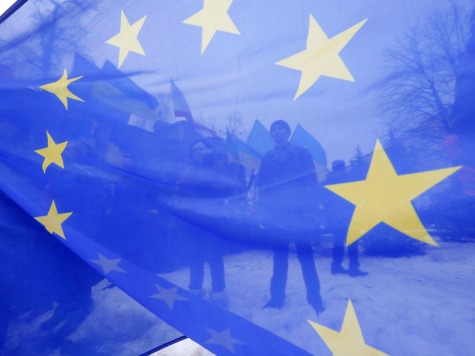The EU’s chief scientific advisor has admitted that eurocrats twist the way scientific evidence is gathered in order to meet their “political imperative.”
Prof Anne Glover, appointed in 2011 to provide the European Commission with independent scientific advice, said in a speech in Brussels that political manoeuvring over evidence has reached into “countless examples” of EU policy, including on the safety of nanoparticles, the impact of biofuels on food prices and chemical substances with hormone-disrupting effects.
She said she found it difficult to disentangle the commission’s evidence-gathering processes from what she calls the “political imperative” that is behind them.
According to Euractiv, Glover used a fictitious example: “Let’s imagine a Commissioner over the weekend thinks, ‘Let’s ban the use of credit cards in the EU because credit cards lead to personal debt.’ So that commissioner will come in on Monday morning and say to his or her Director General, ‘Find me the evidence that demonstrates that this is the case.'”
The Commissioner’s staff might resist the idea but in the end, she said, “they will do exactly what they’re asked” and “find the evidence” to show that credit card use leads to personal debt, even though this may not be the case in reality.
She said that a big challenge for the next European Commission will be to disconnect its evidence gathering processes from the “political imperative” that is driving policy proposals. Under the present system, the commission is “building up an evidence base which is not really the best.”
The commission often hires external consulting firms to gather evidence to support its proposals. They provide “impact assessment studies” or “research.” However, Glover said that, while these consultancies are branded as “independent,” they “have little incentive to produce evidence that contradicts the Commission’s political agenda.”
“If they want repeat business, [they] are not going to go out and find the evidence to show that this is a crazy idea.”
According to the Euractiv report, Glover also said that the commission is not alone in distorting facts. The European Parliament and the European Council, which is made up of the 28 heads of state and government of the EU, do it as well.
“‘What happens at the moment, whether it’s in commission, parliament or council, is that time and time again, if people don’t like what’s being proposed, what they say is that there is something wrong with the evidence.”
The distortion of scientific evidence also spills over into the private sector and pressure groups trying to influence EU policy.
For example, the EU’s 2007 REACH policy (Regulation on Registration, Evaluation, Authorisation and Restriction of Chemicals) generated 36 different impact assessment studies, many from within the chemicals industry warning of the disastrous costs of the policy.
Yet, said Glover, “A final impact study ended up broadly confirming the Commission’s original assessment.”

COMMENTS
Please let us know if you're having issues with commenting.